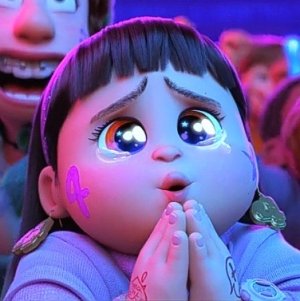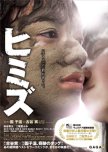Sion Sono is a helmer in the Japanese industry with 25 projects and TV series done in the past 10 years. Needless to say, this is my first Sono film. Here, he adapts a 2011 manga, Himizu, about a teenager who's thrown into the edge of despair. Sono added the 2011 Tsunami and earthquake to this adaptation.
This film is not for everyone. If you're looking to be entertained, don't expect. It's an emotional roller coaster of a mindfuck, for the lack of a better word. It's a dark coming-of-age story. Not your wishy-washy type. It's just keeps driving down and down and down. (But does have a light at the end of the tunnel.) For a 2-hour feature of violence, madness and despair, it's an exhausting watch. One that drags on and on and on and you just want to put these characters out of their misery. But Sono captures these daily struggles with graphic scenes, staggering images and in-your-throat drama that sometimes seem to hyperbolic for your own taste. But effective in delivering the message.
It's a film about the youth. About brokenness. About a bleak future. Although it depicts a rather negative image of Japan and the burden of the youth to paint a future for the emotionally broken adults even if that future is bleak. This negativity is meant to allow viewers to reflect a broken system. Sono's symbolism, repetitive images, long cuts and foreshadowing makes for a masterful play on this rather dark and tragic tale. The music/soundtrack is playful. It's flirts with the cinematography and blends in so well. The low sounds echo that of the tragic story and the catastrophe left by the March 2011 incident. This is a tragedy. Even the bubbly, laughing Keiko (played by Fumi Nikaido) is also dragged into the hellhole.
Shota Sometani (husband of Academy Award Best Supporting Actress nominee, Rinko Kikuchi who is 10 years his senior) and Fumi Nikaido (both have also worked in other films together before and after this one; hence, the undeniable chemistry between the two) are versatile and experienced actors show why they deserve their Marcello Mastroianni Award. Sometani 's performance as a angst-ridden Sumida is a tour de force. It's difficult to believe he plays a 14-year-old character. It's sickening and pitiful as much as it's admirable to watch him. Despite keeping a stone face, it's acting that's not dead fish. The screaming, the mere falling down, the rolling in dirt, the crying in the rain, it's all delivered with such extreme clarity. Nikaido is amazing as well. But like what I said about her in "My Man", she has this innocence that's scary and I also feel that here. But she adds an edge to her acting, there is more tears and that actually complements Sometani's "zombie" character.
The underlying social commentary about a sickness prevalent in society is the film's most important giveaway.
It's the desire of youth, seen as the hope for the future to do good. Even if they can't do good for themselves, they'll do it for society because that's what we're expected to do right? Adults mess it up and we have to find ways to fix it. Adults run away and we have to solve it even if we ourselves also want to run away. That's what Sumida is truly running away from. That's why he wants to be ordinary. That's why he just wants to be normal.
I know this is not a romance but Sumida's bleakness is complemented by Keiko's optimstic nature even if her love is a masochistic, almost obessessive one, there's still a tinge of light in it as she pushes Sumida forward. A distorted version of a manic-pixie dreamgirl you could say.
But as such, it luads more instead, to be hopeful. As Sumida shouts, "Don't give up!" Have a dream!" Yes, it's portrayed tragically, the entirety of the film is but it also provides you a resolution at the end. Thus, this film being Dylan Storm's favorite (taking a line from it to justify his action) misses the take and point that it wants to deliver.
P.S. The recitation of Villon's "Ballade" of the characters is perfect. Of course, the whole poem isn't recited but it carries a meaning that the film has. It's even said by one of the characters. "I know everything but myself." For a film about loss, future and tragedy, it's difficult to find who you really are at the end of the day. Or if you ever will.
Was this review helpful to you?


























